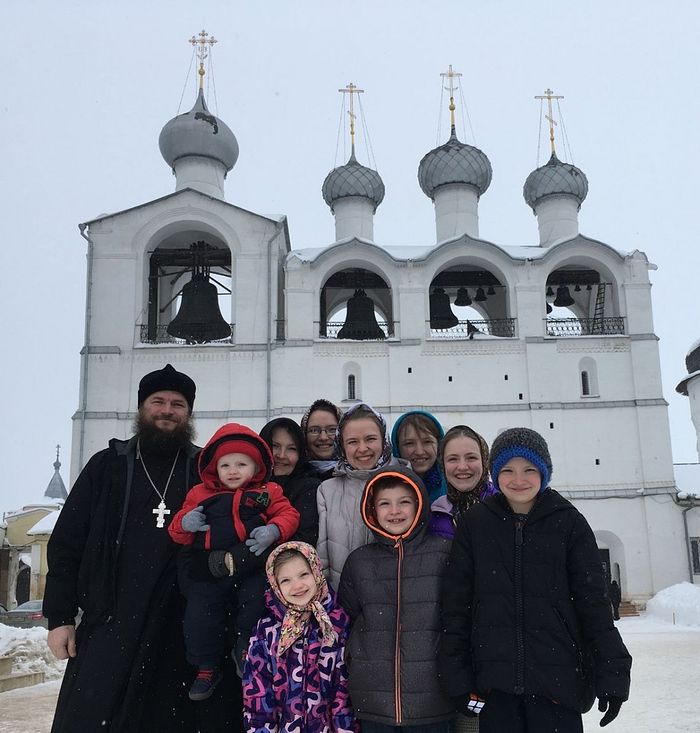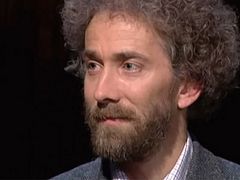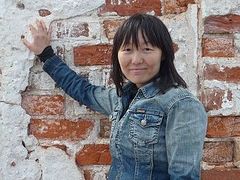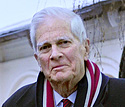Artemy Schmidt, a sociologist at the university in Yaroslavl, Russia, was fascinated by a new settler in his region’s town of Rostov, Fr. Joseph Gleason, who had upped stakes from rural Illinois with his wife and eight children and moved to Russia. Here is Fr. Joseph’s explanation to him of why he and his family chose this non-standard path, and how it has turned out for them.
* * *
The modern world is seeing increased immigration activity due to wars, conflicts, natural disasters, globalization, and many other factors. Traditionally, the immigration stream primarily goes to prosperous countries with welcoming legal systems. When inviting foreign workers, students or refugees, these countries inevitably face the challenges of cultural and confessional assimilation. These problems are especially acute in the EU and USA where Middle Eastern refugees fail to assimilate, ruining the Western ideal of a cultural “melting pot”.
Meanwhile Russia, which traditionally attracts immigrants from all over the world, is offering its own approach to cultural integration. It is one of the main advantages of coming to this great country.
Consider the unique path taken by Fr. Joseph Gleason from the USA. Formerly a Protestant pastor, Joseph and his family converted to Orthodoxy several years ago. Eventually he became a priest in the Orthodox Church. In 2017, Fr. Joseph moved to Russia with his wife Amy and their eight children, and they settled in Rostov-the-Great. He is building a house in a nearby community, and he looks forward to spending his life as a village priest. Many thanks to Fr. Joseph who kindly agreed to answer my questions.
—Father Joseph, please tell me your story. What brought you to Russia?
—I would say the first step was the religion itself. I was formerly a Protestant pastor, and had a small church in Omaha, Illinois. Then all of us became Orthodox Christians. We didn’t want to be hypocrites, visiting church on Sunday and then watching “Game of Thrones” at home afterwards. That would make no sense. When the Faith is the most important thing in your life, you want to devote your entire life to it.
We didn’t want our children to study in government schools, so we homeschooled them. The USA is a good country in many ways, with many good people. But for various reasons, my family and I no longer felt good about living there. I was looking for a different country where we could live, and I began to research countries with strong Orthodox traditions: Serbia, Georgia, Greece, and of course, Russia.
—Why were you disappointed with life in the USA?
—In America, many things were very good. We had 6 acres of land, I had a tractor, my children milked goats, and our church was not far from home. I was also working as a computer engineer. All of these things were great. But I didn’t want to live in a country without a future. When the Supreme Court legalized so-called “gay marriage”, we were very frustrated. Every society is built on the foundation of the family. When the family is strong, society and the state are strong, too. History has confirmed this many times. But without strong families, society crumbles. The homosexual lifestyle is a sin, and it destroys families. In Russia it is possible to find people who practice the homosexual lifestyle, but it is not promoted by the Government. And as St. Paisios says: When an individual sins, God punishes the individual, but when the government sins, God punishes the whole nation. I don’t know if it will take 10 years, or if it will take 50 years, but if America does not repent, then the nation will fall.
The second reason was related to foreign policy. The U.S. has put hundreds of military bases around the world, and have supported numerous unjust wars. And whenever they bring war to Orthodox lands, it seems that they are always attacking Christians, rather than protecting them. However bad the leader of Iraq may have been, at least he protected the Christians who lived there. But after war was forced upon Iraq, the Christian populations were mercilessly exiled or slaughtered. There were around one million Christians there prior to the war, and today there are virtually zero. In December, 1998, western armed forces stopped bombing Iraq during Ramadan, out of respect for Muslims, yet in 1999 they had no qualms about bombing Serbia on Pascha, the holiest day of the year for Orthodox Christians.
Consider the recent war in Syria. The Orthodox Christian faith has been native to Syria for 2000 years, going all the way back to the first century. In ancient times Antioch was a Syrian city, and according to the New Testament scriptures, Antioch is the very first place where the word “Christian” was used. These ancient Orthodox Christian communities have been around for 2000 years, and they still exist in Syria today. And the current leader of Syria protects them. Meanwhile, in the recent war, opposition forces were systematically torturing, raping, and slaughtering Christians without mercy. And when the West entered the fray, they supported the opposition. Over and over again, Western countries continue to support those who kill Orthodox Christians. This is not acceptable.
Because I am a Christian, I believe that supernatural beings are among us, and that they influence the course of history. I am confident that international policy is not merely a confrontation between human beings; it’s also a battle between angels and demons. If you are on God’s side, then you should protect Christians, and not try to destroy them.
Russia openly promotes the Orthodox Christian faith. And in various military conflicts, Russia has fought for the side that protects Orthodox Christians. So if there is ever another major war, I do not want my children to be in an army that fights against Russia. I would rather they be in the Russian army, so they can help protect Christians.
—Why did you choose Russia?
—The most important reason is religion. The Orthodox Church has been in Russia for over 1000 years. And today, millions of devout Orthodox Christians are living life and raising their families in Russia.
Whenever firemen fight a large fire, and they need a safe meeting place, they go to a part of the forest that has already burned out. For 70 years, the fires of atheistic Communism burned through Russia, bringing oppression and martyrdom to millions of faithful Christians. But that fire has burned out, and Russia has learned its lesson. In Russia for the past 25 years, over 25,000 churches have been either built or rebuilt. That’s an average of over three new churches built every day. While the rest of the world is turning its back on Christian principles, spiritually burning itself to a crisp, the Church has found a safe haven within the borders of Russia.
We could have moved to Canada, Mexico, or a number of South American countries, but homosexuals are allowed to “marry” each other there. And if you don’t support the sodomites, then you risk losing your job, or even losing your children. Western European countries have also fallen into the claws of the homosexual movement. I love the churches in Greece. But homeschooling is prohibited there, and they too have succumbed to sodomite propaganda. Thankfully, some African nations have rejected the homosexual nonsense. But many of these countries are in chaos, with Muslims killing Christians, blacks killing whites, and unhealthy levels of civil unrest.
It is also important to consider national security. Most countries have a relatively weak military, and they would not be able to withstand an attack from a major world power. For example, what if I had settled in Chile, Paraguay, Serbia or Greece? Hypothetically, if any of these countries were attacked by America, or attacked by a coalition of U.N. forces, they would probably not be able to defend themselves.
Russia is better: Orthodox Christianity is respected, homeschooling is legal, and sodomite propaganda is forbidden. And the Russian army is very strong. Instead of putting military bases all around the world, they focus on defending national borders. If any nation is foolish enough to attack Russia, I believe they will lose. I feel safer in Russia than I do anywhere else.
—What was your family’s reaction to your decision?
—Very positive. We talked a lot during the whole process, and I explained my thoughts along the way. They understood the dangers of remaining in a country where the traditional family is under attack. And they were excited to see the ancient Orthodox churches in Russia, and to meet Orthodox Christians living there. As a family, we all started studying the Russian language, even before moving across the ocean. Since arriving here in 2017, my family and I have grown to love Russia more and more. It is a good place to live.
When a spaceship travels from earth to the moon, the first step is to escape the earth’s gravity. But when it reaches a certain point, the moon’s gravity takes over, and pulls the spaceship towards itself. Our journey to Russia worked in a way that is similar. Initially, we were just trying to escape the troubles of our former country. But the more we learned about Russia, the more it attracted us. Regardless of how good or bad other countries may be, Russia itself is a good place to live.
—Did you have some fears before moving?
—Nearly a decade ago I became an Orthodox Christian, but I still had the mindset of an average American. I did not think of Russia in a positive way. I remembered Gorbachev, Yeltsin, and the Berlin Wall. I was naive, and I trusted the mainstream news. But thankfully, over time, the Orthodox Christian faith helped give me a better understanding of Russia.
Surprisingly, I have met Americans who still think of Russia as a communist country. They are amazed to find out there are so many churches here. It helps open the eyes of American readers, when I post photos of beautiful Russian villages and churches on my blog. Many Americans think Russians don’t smile, so some of them have been impressed, seeing a simple picture of a Russian person smiling.
Before moving here, many Americans told me that Russia is a dangerous place. They worried that I would be robbed and that my children would be kidnapped. Yet the reality is that life here is quite safe for families. Here in Rostov, many times I have let my children walk from home to church and back again. That is not something I would allow them to do in Chicago. The people here in Rostov are very kind, and life is peaceful and quiet.
I think propaganda is the main reason why most Americans misunderstand Russia. They don’t know anything about Russia, except what they have seen in the movies and on the news, so they just don’t have an accurate picture.
But when a person finally travels to Russia, the reality becomes much clearer. People come here to visit once, and then they want to come back again and again, and they want to bring their relatives and friends.
—Where do the false stereotypes come from?
—In this modern world, most people are preoccupied with entertainment and pleasure. Most people don’t know history well, and they don’t watch the news critically. Too many people trust mass media, and the news stations and movie studios are really good at manufacturing propaganda. The main aim of propaganda is to dehumanize your enemy. But if you just once visit Russia and see Russia with your own eyes, you will never believe the news stations again.
Thankfully, I have not seen the same sort of propaganda here in Russia. The news is not filled with anti-American bias, and the people here do not hate Americans. People here know that I am from America, and they have been very welcoming and kind.
—Why was Russia chosen as a main rival?
—During the Cold War, the Soviet Union was considered enemy number one, and in 1991 this enemy lost. Russia struggled for a while afterwards, and many Western influences tried to work their way into the country. But after several years, a strong leader arose who was not willing to let Russia be a servant to the West. Russia is willing to work together as an equal partner with other countries, but Russia is not willing to be a vassal. Unfortunately, the U.S. doesn’t seem willing to treat Russia as an equal. Thus, there has been a lot of anti-Russian rhetoric among politicians, and the mass media has been a major source of anti-Russian propaganda.
For much of history, the word “Russian” has been hated by Western Europe and the U.S., regardless of whether one is discussing the Russian government or the Russian Orthodox Church. Many of the reasons can be traced back to ancient grudges held by opposing religions.
A thousand years ago, Rome was still part of the Orthodox Church. But then the Roman Catholic Church went into schism. Ever since, Western Europe and Eastern Europe have been at odds with each other. Eight hundred years ago, St. Alexander Nevsky agreed to pay tribute to the Mongols, because they didn’t try to impose their religion on him. But Sweden tried to force Russians to become Roman Catholics, so Nevsky fought them. In some respects, little has changed since then. The West still tries to control the East, and the East still refuses to be controlled.
Much earlier, in the fourth century, the Roman Empire had moved its capital from Rome to Constantinople. Thus Constantinople became known as the “Second Rome”. 1000 years later when Constantinople fell to the Muslims, Russia picked up the torch, building an Empire closely integrated with the Orthodox Christian Faith. Thus Moscow has often been called the “Third Rome”.
Throughout the middle ages, the Roman Catholic Church stood in opposition to the Orthodox Church. And this influenced international relations on numerous occasions. The West opposed the East. The First Rome was at war with the Third Rome. And this ancient grudge has continued until the present day.
Like two families that have been feuding and fighting for multiple generations, many people have forgotten the original reasons for disagreement. They just know they are on opposite sides, and that they are at war with one another. Multiple centuries of fighting have led to a very deep-seated animosity, almost down to the level of one’s DNA. The culture in America and Western Europe conditions people to think of Russia as the enemy, and it is very difficult to overcome such ancient grudges.
That may help explain why Westerners are so quick to forgive Western nations for past sins, yet so unwilling to forgive Russia. Of course, bad things have been done in this part of the world. In the Soviet Union, the Orthodox Church was under attack, churches were destroyed, and many Christians were martyred. The murder of the Royal Family was a terrible crime. The West is always quick to remember the sins of Russia’s past. Meanwhile, Hitler and Napoleon also did terrible things, and committed many crimes. Yet time has passed, and Western nations have been willing to forgive Germany and France. Why can’t they also forgive Russia? Perhaps it is because conflicts with France and Germany are assumed to be “internal affairs”, while conflicts with Russia are assumed to be risky interactions with a dangerous foreign power. The descendants of the First Rome are still trying to fight against the Third Rome.
—Why do some critics accuse the Russian Orthodox Church as if it were an instrument of the Kremlin?
—In America, many people push for the separation of Church and State, where government operates without regard to religion or Christian morality. Of course, this approach is wrong. It is just an excuse for a nation to ignore God. Such people are worried by any cooperation between the Church and the government. As far as I can tell, the Russian government and the Russian Orthodox Church don’t try to control one another. They just work together in a brotherly way, to accomplish common goals. Of course this annoys the West.
—The Russian Constitution provides the freedom of religious choice. Religions are separate from the state. Why is Orthodoxy so heavily criticized?
—Yes, Russia has a long history of religious freedom. For centuries, Christians, Buddhists and Muslims have lived in Russia, without being a danger to one another. But in the West today, respect is usually only given to non-Christian religions. Muslims, Buddhists and atheists are praised, while Christians are called bigots. The West hates Russia, and the West also hates Christianity. The Russian Orthodox Church is both Christian and Russian, so it is doubly hated by the West.
—What were your first steps in moving to Russia?
—When I first became interested in visiting Russia, I didn’t know anyone here. Then on Facebook I became acquainted with an American who had moved to St. Petersburg and had been living there with his family for several years. In 2015 he invited me for a visit. I visited Russia two more times in 2016. I visited many places, including Moscow, Pskov, Voronezh, Kostroma, Galich and Unorozh. In January 2017, I moved here to Rostov with my family.
—Did you have any problems?
My friend from St. Petersburg told me that Russian people are good people. If you are friendly, then they will be friendly. But if you are arrogant and triumphalistic, then things won’t go so well. If you are humble and grateful, then everything will be okay. That’s true. He also said there would be many problems with documents and bureaucracy —unfortunately that’s also true. Also, in Rostov it has been difficult to find a Russian language teacher.
—Did you have any problems based on your nationality?
—No. Most people here think I look like a native Russian. When I try to speak Russian, people are friendly and they try to understand, even when I don’t speak perfectly. So it’s not really an issue. The family from St. Petersburg that invited me in 2015 is also multinational: He was from California, his wife was from Russia, and her father was of Mongolian background. The family was very kind and friendly. More recently, while returning from a trip to Suzdal (my favorite Russian town), we visited an Armenian café. The owner, an Armenian man, was also very hospitable and kind. Not far from Rostov is the village of Davidovo, where my friend Fr. Vladimir is the village priest. The wife of one of his parishioners is Chinese. In my travels, I have had no problems with people of various nationalities. They have all been very kind and friendly. I think we can say the “melting pot” phenomenon takes place in Russia rather successfully.
—What are your plans for the future?
I look forward to being a village priest, and to farming my own land. I want to raise my children here, and see my grandchildren grow up here as well. Life here is not easy, but it is good. Everyone in my family can uphold traditional Christian marriage, without anyone losing a job as a result. If the Lord allows, we can live our lives in peace as Orthodox Christians.





While many are justifiably sceptical of the reality of the the US manned moon landings based on geopolitical factors, failure to replicate post-nixon era, photographic and cinematic inconsistencies, radiation dangers, etc , the assertion that outer space itself does not exist is obsurd. Where are you getting satalite signals from? What is causing the sea tides if not the moon? Do you think all US and Soviet remote control vehicles on the moon, venus, mars, etc were fake? Good grief.